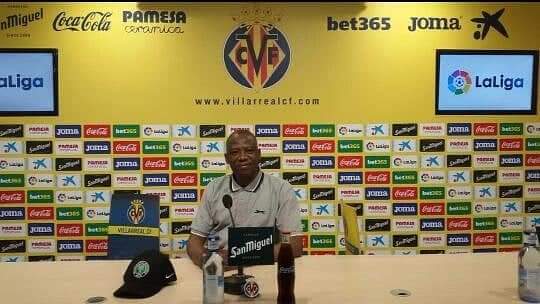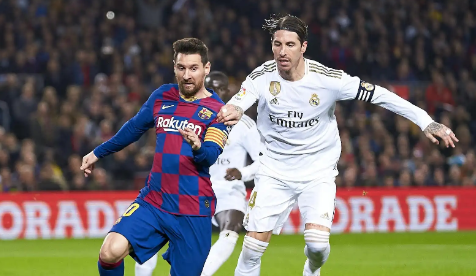By Mumini Alao
IT WAS not my first visit to the Sports Zone, the “most popular sports show anywhere,” as Sadiq, the cerebral yet vivacious morning belt anchor on Lagos Talks 91.3FM, likes to describe the programme. But certainly, it was my most enjoyable.
Last Thursday morning, August the 8th, I had to leave home unusually early in order to be on time for the 8.00am start of the programme. Co-anchor Segun Agbede “The Pundit” had graciously invited me the previous week following our brief conversation on the never-ending debate about the status of foreign and home-based players in the Super Eagles. We didn’t agree on the matter: Segun felt the home boys deserved a more prominent role while I felt differently. But Segun found my arguments reasonable enough for serious consideration and thought I should come share my thoughts with SportsZone listeners. So, I went.
I was swept off my feet by the reception that I got. First, another co-anchor, Joseph Faulkner who apparently wasn’t scheduled to feature on the day showed up to say he had come when he learnt I was coming around. Second, Yemi Adesanya and Femi Farawe, the other analysts on call, both went on about how much they enjoyed reading my articles in Complete Football magazine many years ago when they were “in secondary school.” Then Segun, ever the wordsmith, said he couldn’t find the right word at that moment to describe me to his listeners so he decided simply to call me “a legend.” I was flabbergasted.
I am a regular listener to SportsZone so I knew very well the position of each guy in the studio on the main issue Segun had invited me to discuss. Apart from Segun himself, Joseph was another diehard advocate for the local players and I confessed during the programme that I wished he hadn’t shown up because I didn’t want to cross his path in any argument. Oh, Joseph is such a tough debater; he never ever gives up. Segun is equally a handful in an argument and I had always admired how Charles Anazodo, the main anchor and a tough cookie himself, coped with both Segun and Joseph when they disagreed with him on issues……which was often the case! (Charles was on vacation when I visited).
Yemi is also an advocate of the local players, leaving Femi as the only analyst in the studio whose views I shared. To clarify, Femi is actually a “pro-Gernot Rorh” like me, not necessarily “anti-home based.” But being pro-Rorh has been equated somewhat with being anti-home boys in recent conversations which may not be totally correct.
Anyway, I had come well prepared to explain my view points. When the question was put to me whether I thought the Nigeria Professional Football League (NPFL) was good enough to provide ready-made materials to populate the Super Eagles at the moment, my answer was a straightforward NO. The following were some of my arguments…..
1. I had been an advocate of the home boys myself, even suggesting is an article many years back that the Football Federation should consider reserving some places for them in the national team which was criticized then by some observers as equivalent to quota system and promoting mediocrity.
2. Unfortunately, nearly all the coaches (Nigerians and foreigners) that handled the Eagles since 2003 (Austin Eguavoen, Shaibu Amodu, Berti Vogts, Lars Lagerback, Samson Siasia and Gernot Rorh) had consistently shown a clear preference for the foreign-based players, so it became logical to conclude that the local boys just weren’t good enough. These coaches must have noticed some fundamental flaws.
3. The only coach that gave the local boys a chance in recent memory was Stephen Keshi when Nigeria won the AFCON in 2013, but just a year later, not a single home boy made it to the 2014 World Cup in Brazil. Soon after AFCON 2013, the likes of Sunday Mba and Godfrey Oboabona who were the home boy heroes of the AFCON triumph relocated abroad while the others practically fizzled out, leaving Keshi with no choice but to look abroad for his World Cup team selection.
4. Dominance of national teams by players based in Europe is now a continental and global trend, not a Nigerian phenomenon. Algeria (21 players) and Senegal (all 23 players) that played the final of the 2019 AFCON were dominated by Europe-based players while Nigeria who finished third also had 22 players from abroad. On the global stage, the top three countries at the 2018 FIFA World Cup -France (15), Croatia (21), and Belgium (all 23 players) – were dominated also by foreign-based players. Even football superpowers Brazil, Argentina and other South American teams were dominated by Europe-based players. What these statistics confirm is that Europe is the capital center of world football, it is where the world’s best players and best coaches are concentrated, it is where national team players can can get the best coaching and best exposure to help them perform at the highest level for their countries.
5. Even within Europe, some football leagues are second or third rate which explains why France, Croatia and Belgium (all Europeans) still had to recruit most of their teams from the top rated leagues of England, Spain, Germany and Italy. If the French, Croatian and Belgian leagues are not considered good enough to produce winning teams for their countries, how much more the Nigerian league, with all its familiar shortcoming? If Brazilian and Argentinian home-based players can only play second fiddle to their Europe-based compatriots, Nigeria’s case is not surprising because there also are many talented players in Brazil and Argentina who are constantly over-looked by their coaches in favour of the better exposed European contingent. But of course, Nigeria can decide to be different and decide to domesticate the Super Eagles out of patriotic fervour. The choice is ours.
6. I concluded my argument by conceding to Segun and Joseph that they were more conversant with the Nigerian league than me and I couldn’t dispute the fact that there truly are lots of talented players at home. But whether talent alone is enough to compete at the highest level is debatable as we all are familiar with the many factors inhibiting our home based players from realizing their full potentials until they’ve gone abroad. And unless we resolve those problems, the domestic league cannot produce ready-made materials for the national team like it did in the past.
It would appear that the facts of my arguments resonated with the SportsZone team because Segun, Joseph and Yemi didn’t tackle me rugby-style like I know they’ve done to Charles and Femi quite often on this subject. I thought perhaps they were just being nice to me as their guest, but Segun admitted afterwards that my point about the global drift towards a dominant Europe as the capital of world football is indisputable which gives the advantage to Nigeria’s foreign-based players over the local boys.
One point on which my hosts would not be moved at all, however, was the status of current Super Eagles coach Gernot Rorh. Illustrating with Nigeria’s experience with Dutch coaches Clemens Westerhof between 1989 and 1994 and Jo Bonfrere between 1996 and 2000 when we recorded our greatest achievements at the senior level, I argued for continuity with Rorh on the basis that our third place finish at the last AFCON was not too bad, but Segun would hear none of it. Neither would Joseph and Yemi. All three are simply exasperated by Rorh’s dismissive attitude towards the local players, his refusal to scout in the league at all, and his penchant to select players from the “backwaters of lowly foreign leagues when there are better players at home.”
I agreed that Rorh needs to do more to encourage the home boys, just like Westerhof did in his own time. But I insisted that it was Rorh’s prerogative to decide which players are “better” for the national team. And if our best players can only be found in the “backwaters of lowly foreign leagues,” (Odion Ighalo in China?; Ahmed Musa in Saudi Arabia?), that tells us how much repair work needs to be done in our football as a whole.
In my opinion, the repair work must begin at the foundation level, the grassroots: setting minimum standards for structured football academies in terms of facilities and personnel requirements; disbanding so-called academies that do not meet set standards; developing a central football curriculum that will define and entrench a national playing culture across all age cadres; organizing specialized training programmes for youth coaches; and more. These are some of the developmental functions that the technical committee of the Nigeria Football Federation should engage in at the moment to ensure the future growth of our football. At club football level, the work is even much more before we can become competitive even for club continental titles again. But if we’re committed, it won’t be long before the results will start to show because, truly, our footballers are naturally talented. What we’re missing are the key supporting elements to grow and nurture the talents.
I say thank you to the SportsZone crew for having me on their programme. The home-based versus foreign-based debate in Nigerian football is never likely to end. It will continue to elicit a lot of arguments. The reader here is welcome to join the conversation. Make your comments below…..

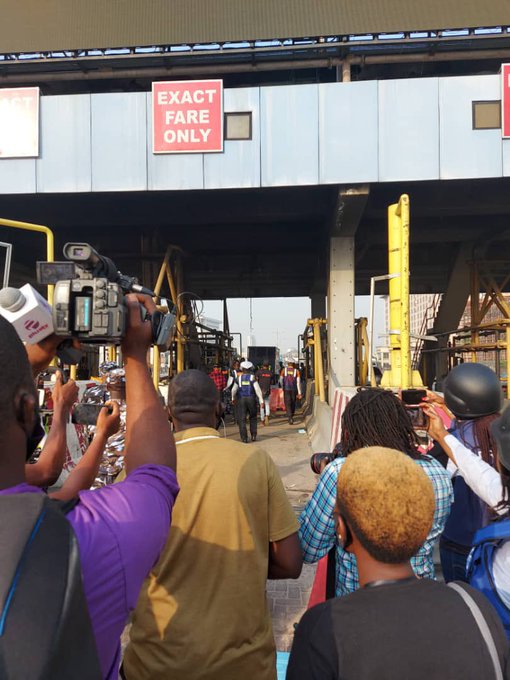
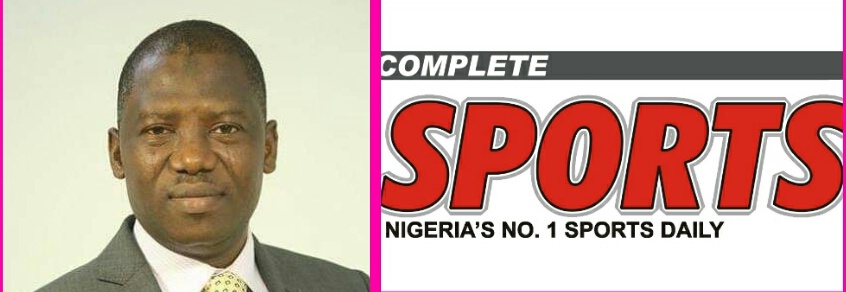
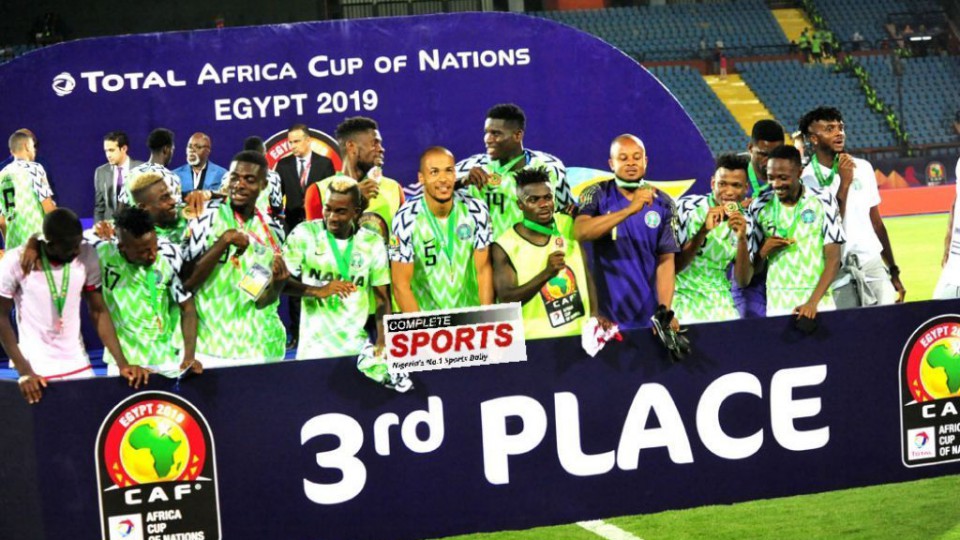

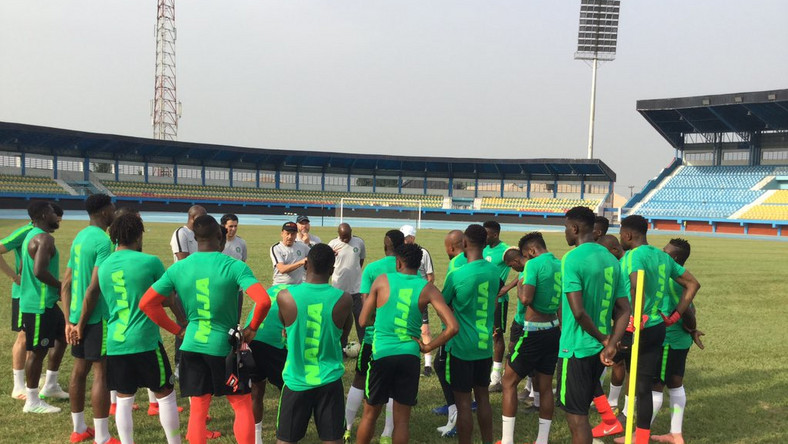
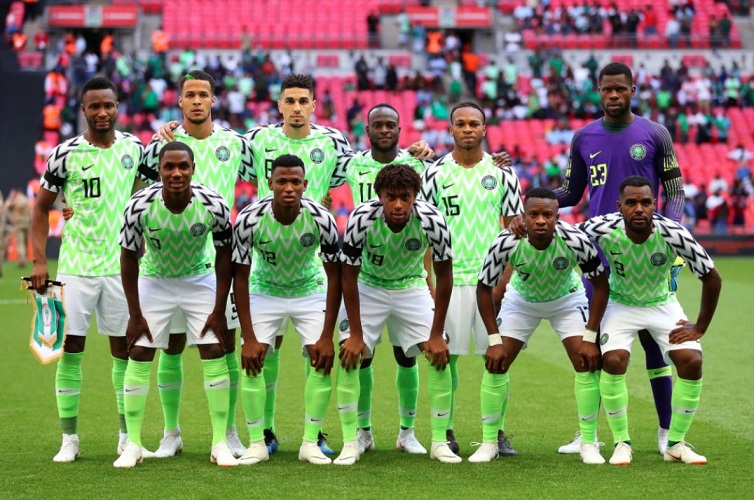
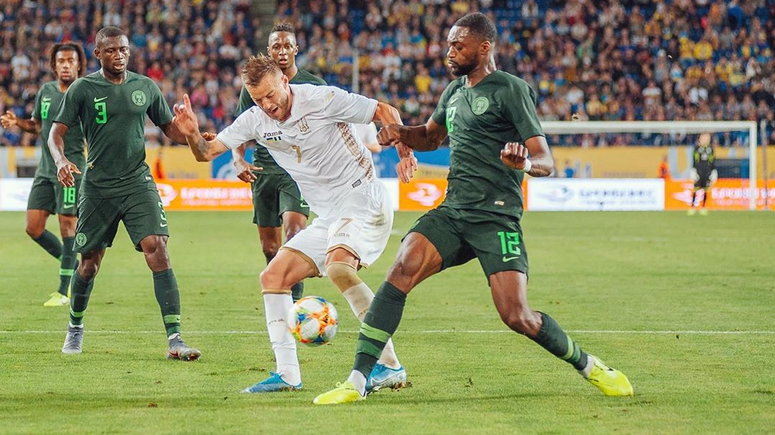

![Exclusive from Madrid: Mumini Alao on standby at the Bernabeu for El-clasico [Video] 9 Exclusive from Madrid: Mumini Alao on standby at the Bernabeu for El-clasico [Video] 6](https://naijasuperfans.com/wp-content/uploads/2020/03/IMG_9793-rotated.jpg)

